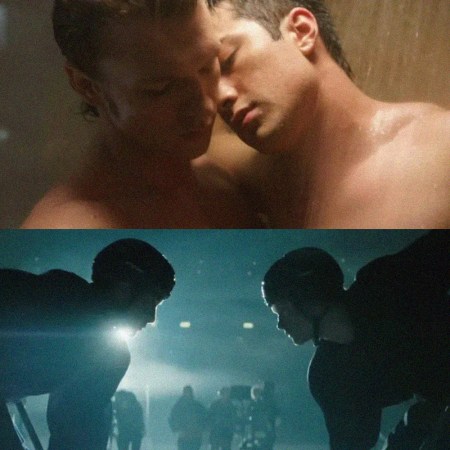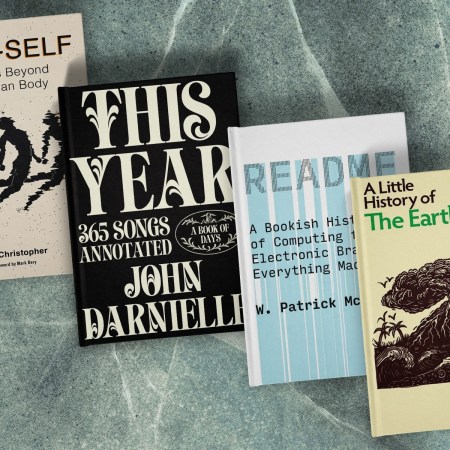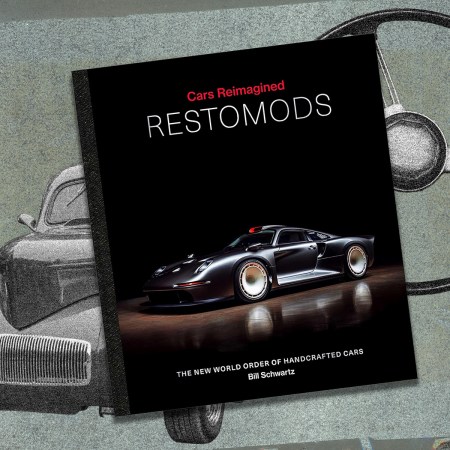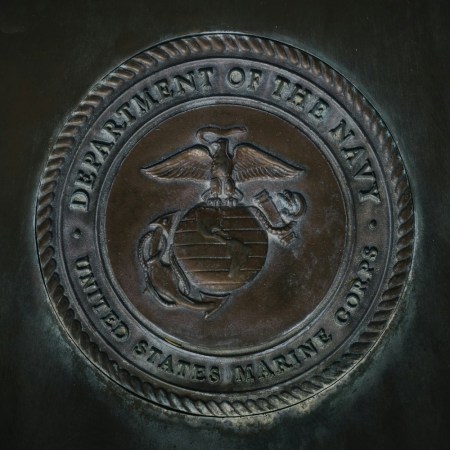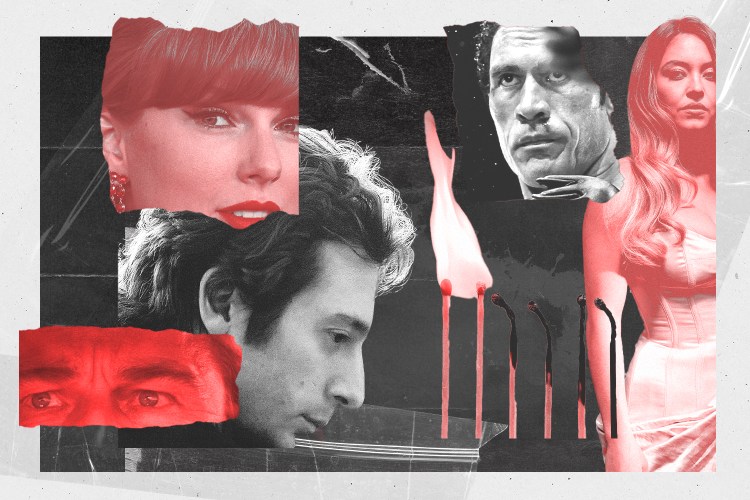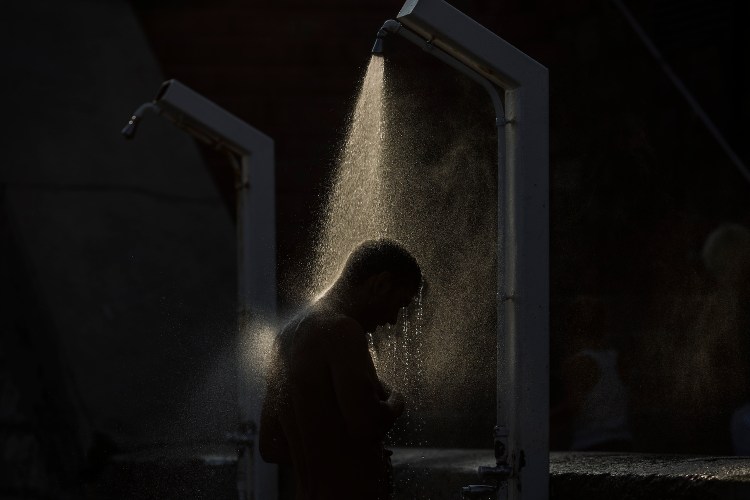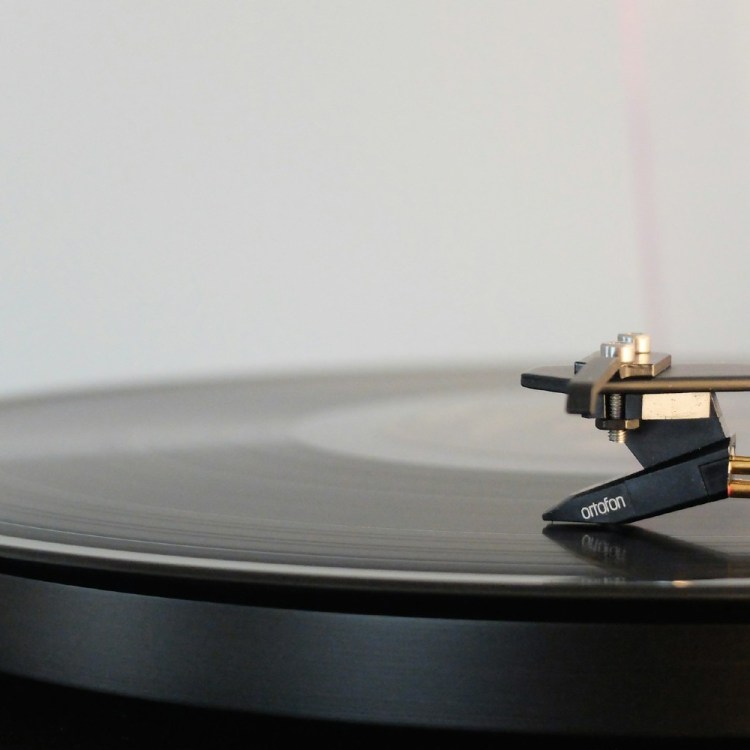The last few weeks have presented an unlikely echo in American military history: the U.S.’s entry into World War I and — precisely a century later — the Trump presidency’s bombing of a Syrian airfield.
Whether the latter is recorded as a one-off warning shot, deft attention-shifting or the opening salvo in renewed U.S. operations in the Middle East is as yet unknown. What it does present is the opportunity to consider the evolution of 100 years worth of warfare — from the animalistic meat grinder that awaited American troops in the battlefields of Belgium and northern France to today’s atomized conflicts — as told by the literature created in its century-long wake.
These 50 books tell the story of warfare from all perspectives: soldier and citizen, prisoner and guard, warrior and philosopher.
We won’t pretend that this is all-inclusive, and we’ve left off some canonical works — but you don’t need us to tell you to read Catch-22, Anne Frank’s diary or Slaughterhouse-Five. Here, we’ve leaned toward a 360-degree view of warfare, from a German officer’s POV on World War I, to an African-American poet’s experiences in Vietnam, to a woman’s account of the rape of Berlin. (Sample passage: “Ilse and I hastily exchanged the first sentences: ‘How many times were you raped, Ilse?’ ‘Four, and you?’ ‘No idea, I had to work my way up the ranks, from supply train to major.’”)
Ernest Hemingway offered readers these instructions: “Never think that war, no matter how necessary, nor how justified, is not a crime.” These 50 books test that view, and many more.
1. The Guns of August (1962)
Barbara Tuchman
The definitive history of World War I, Tuchman’s book focuses on the calamitous series of errors, obligations and aggressions that forced nations into conflict. It’s so influential that it reportedly shaped John F. Kennedy’s thinking on the Cuban Missile Crisis — which kicked off only months after this book’s publication, in 1962.
2. Poilu (1978)
Louis Barthas
Only published in English in 2014, Louis Barthas’s Poilu — the title translates literally as “the hairy one” and more meaningfully as “grunt” — is the definitive account of life in the trenches. Forced into service at the age of 35, Barthas, a barrel-maker from the south of France, filled 19 notebooks with notes testifying to the needless terrors of the Western Front and the limitations of patriotism.
3. The Enormous Room (1922)
E.E. Cummings
Before he was e.e., Edward Estlin Cummings joined the Norton-Harjes Ambulance Corps with John Dos Passos — and later spent three months in a French military prison after a friend, whom he refused to denounce, was accused of anti-war sentiments; Cummings was only released after his father personally petitioned President Wilson. This autobiographical novel is most interesting for how the poet confronts the absurdities and conformations: with much dry humor.
4. Goodbye to All That (1929)
Robert Graves
Perhaps the preeminent English-language memoir of the war, Graves’s account would become iconic for his lyrical advancement of his themes: the absurdity of war, the horror of No Man’s Land, and the impossibility of communication between those who fought in war and those who advocated for it from the safety of their homes.
5. Storm Of Steel (1920)
Ernst Jünger
Storm of Steel marries a total experience of World War I (Jünger arrived at the front in December 1914 and fought until a bullet tore through his chest in 1918) with a novelist’s sense of psychological nuance. The result is a cacophonous account of war in all its terror, waste, excitement and ecstasy — the WWI memoir equivalent of Apocalypse Now.
6. Three Day Road (2005)
Joseph Boyden
The heartbreaking story of two Cree teenagers who leave their ancestral homelands to fight in World War I on behalf of the Canadian army, Three Day Road suggests that war is only half over when the fighting stops. Despite the recent controversy over Boyden’s claim of First Peoples heritage — now believed to be false — this remains a small, sensitive story of the contradictions in fighting for a country that is not entirely your own.
7. Johnny Got His Gun (1939)
Dalton Trumbo
There’s a reason World War I spawned a huge number of powerful anti-war books: never before was warfare so mechanized, never before had the death toll been so catastrophic. And while the nature of war is to disfigure and destroy the bodies of men, the damage caused by World War I seemed beyond knowing — like the central character in this stuff-of-nightmares book, who loses his arms, legs, eyes, ears and tongue to an artillery shell.
8. The World of Yesterday (1942)
Stefan Zweig
Once one of the world’s best-read writers, Zweig’s fiction had become obscure when Wes Anderson cited him as inspiration for the suave M. Gustave in The Grand Budapest Hotel. This memoir — particularly the section spanning World War I to Hitler’s rise to power — presents an impassioned defense of the European project and a frightening, newly relevant warning of the dark powers of nationalism.
9-10. Mrs. Dalloway (1925) and Between the Acts (1941)
Virginia Woolf
Though Woolf dealt more pointedly with the legacy of war in Mrs. Dalloway vis-à-vis the suicide of shell-shocked World War I veteran Septimus Smith, Between the Acts is an elegy in the form of a novel: for England, for civilization, and the garden parties and history plays that symbolized them both. Writing during the terrors of the Blitz, Woolf killed herself before its publication, rather than witness a second world war.
11. Wild Swans (1991)
Jung Chang
A century of Chinese history is told in this family history, from her grandmother’s experiences as a warlord’s concubine to her mother’s life as a communist to Chang’s remembrances of her family’s fall from privilege.
12. For Whom the Bell Tolls (1940)
Ernest Hemingway
Is there a better American writer on war? We say no — and For Whom the Bell Tolls is his crowning achievement, the doomed push to destroy a single bridge during the Spanish Civil War. Most Americans will need an encyclopedia to place the Spanish Civil War; Hemingway uses it to tell a timeless story of oppression and rebellion.
13. Homage to Catalonia (1938)
George Orwell
A necessary companion to For Whom the Bell Tolls. Orwell’s memoir, like Churchill’s history (see no. 15 below), marries unimpeachable access — Orwell fought Franco and the Fascists in a left-wing militia — with a canonical voice.
14. The Berlin Stories (1945)
Christopher Isherwood
While it’s perhaps more famous as the source material for Cabaret, Isherwood’s “Goodbye to Berlin” — one of two novellas that comprise this book — is a devastating account of the riotous, rebellious, fractious culture that gave way to Nazism … all through the eyes of a British writer who purportedly situates himself, from the opening lines, as “a camera with its shutter open, quite passive, recording, not thinking.” This, of course, is not true: Every observation is washed in Isherwood’s erudition, wit and anguish for a culture in collapse.
15. The Second World War (1948-1953)
Winston Churchill
Churchill won a Nobel for this six-volume study of World War II, from “The Gathering Storm” to “Triumph and Tragedy.” This is not an impartial text — but it is, of course, peerless in its author’s placement as one of the war’s primary combatants and a gifted master of the English language.
16. Suite Française (2004)
Irène Némirovsky
The story behind Suite Francaise would rival the one told within its pages: Irène Némirovsky, a French Jew of Russian descent, was deported to Auschwitz in 1942 and died there; the manuscript for this book remained hidden for 64 years, until found by her daughter. She left behind a story of considerable woe and crystalline prose, told with an eye for the absurdities of war and occupation, as French citoyens contemplated life alongside the invaders.
17-18. Stalingrad (1998) and A Writer at War (2005)
Antony Beevor; Vasily Grossman
Beevor is perhaps the best-known anglophone writer on World War II, and Stalingrad is the best introduction to his work, a gripping retelling of the battle that cost one million lives. Beevor edited and translated A Writer at War, by Russian novelist Grossman, a witness to the worst and most dramatic conflicts on the Eastern Front, from Stalingrad to Ukraine to the Battle of Kursk, the biggest tank engagement in history.
19. The Naked and the Dead (1948)
Norman Mailer
The ur-text for World War II stories focusing on the unique brotherhood of wartime combatants (think Band of Brothers or The Pacific), Mailer’s Pacific Theater epic was based on his own time fighting with the 112th Cavalry Regiment in the Philippines.
20-21. The End of the Affair (1951) and The Quiet American (1955)
Graham Greene
Greene’s The Quiet American tackles the problem of international stupidity more directly with the brilliant, criminally naive American goober Pyle, but it can’t match the operatic power of The End of the Affair, the story of an illicit love (based on Greene’s real-life affair with his married goddaughter, which endured for 20 years). Here, the Blitz becomes an agent — or antagonist — of the god who torments Greene’s alter ego.
22. Atonement (2001)
Ian McEwan
A profound inquiry into the nature of stories, the reliability of our narrators and the impossibility of forgiveness, Atonement is devastating from its opening scene, at the sort of English country house that seems to exist only to provide a contrast for the dreariness of post-WWII Britain. McEwan’s primary themes here are not dependent on his novel’s setting, which moves from pastoral England to the evacuation of Dunkirk — instead, he makes use of the way that war raises every narrative stake, until even a word spoken out of turn can, in time, become a death sentence.
23. The Port Chicago Mutiny (1989)
Robert Allen
Forced to load dangerous munitions onto the warships assembled at the Richmond, California, shipyards, African-American soldiers at Port Chicago faced tremendous hazards. Over 200 died following an explosion in July 1944 — and the mutiny, by their fellow ammunition loaders, that followed. The disaster was the biggest in the history of the U.S. Navy.
24. The English Patient (1992)
Michael Ondaatje
Ondaatje is the most poetic of prose writers, and his North Africa-set English Patient is part Casablanca, part elegy: for lost worlds, lost love, lost futures. War is the dramatic backdrop for the central love story — between a married woman and a Hungarian count — but unlike, say, Pearl Harbor, this serves to heighten, rather than trivialize, the possibility of connection.
25. Between Shades of Gray (2011)
Ruta Sepetys
This is a book written for teenagers — but so was Hunger Games, and that book is a fine piece of dystopian fiction. Between Shades of Gray is a sturdy introduction to the cataclysmic occupation of the Baltic nations by the Soviets during World War II and its ensuing deportations and degradations. And if you need a sense of how bad that was, keep in mind that some Balts greeted the Nazis as liberators.
26. Maus (1980-1991)
Art Spiegelman
A Holocaust survival story unlike any other, part memoir and part graphic novel, Maus tells the story of Vladeck, a Polish Jew, and his son — Spiegelman himself.
27-28. Survival in Auschwitz (1947) and This Way for the Gas, Ladies and Gentlemen (1959)
Primo Levi; Tadeusz Borowski
Primo Levi’s Survival in Auschwitz is perhaps the canonical account of life in the notorious German extermination camp; Borowski’s book is an autobiographical collection of stories inspired by his experiences at Auschwitz and Dachau as a Polish political prisoner — never more chilling than when his narrator contemplates the number of people murdered during throw-ins in a soccer game.
29. Childhood (1978)
Jona Oberski
A parallel account to Anne Frank’s diary, Jona Oberski’s autobiography tells the story of the Holocaust from the perspective of a four-year-old boy, imprisoned along with his parents at Bergen-Belsen. His parents died; Oberski lived to tell his story in the disarmingly direct language of a child contemplating a world without pity.
30. A Woman in Berlin (1953)
Anonymous
A shattering account of war’s aftermath, A Woman in Berlin records the period of calamitous sexual violence that began when Soviet troops entered the devastated city at the close of World War II. The anonymous memoirist — revealed 60 years after the war to be journalist Marta Hillers — shares stories of her rapes with friends alongside workaday pleasantries.
31. An Artist of the Floating World (1986)
Kazuo Ishiguro
A master of psychological nuance, the Booker Prize-winning Ishiguro — better for his England-set Remains of the Day and Never Let Me Go — returns to his native country for this book about life on the wrong side of history, as an artist struggles to make a place for himself in post-World War II Japan.
32. The Surrendered (2009)
Chang-rae Lee
Only one of the three main characters in this book, set in and around the Korean War, is actually a soldier, but the ravages of war are spread easily between a woman caring for orphans (whose parents were murdered in 1934 Manchuria), a refugee girl she tends to (who loses her twin siblings) and Hector, an American GI.
33-34. Matterhorn (2009) and What It Is Like to Go to War (2011)
Karl Marlantes
Marlantes, a Rhodes Scholar and Marine, labored on his Vietnam epic for decades, until it was picked up by a little-known house and published in 2009; a year later, it earned a wider release and tremendous accolades — from critics including Sebastian Junger, who called it “one of the most profound and devastating novels ever to come out of Vietnam — or any war.” What It Is Like to Go to War is the necessary companion book, a philosophical examination of the warrior and the modern war.
35. Dien Cai Dau (1988)
Yusef Komunyakaa
The only Pulitzer poet to have also received a Bronze Star for heroic military service, Komunyakaa — now midway through a two-year term as New York State’s poet laureate — authored this book of Vietnam-set poems that communicate the fractious terrors of war in a manner more immediate, and less measured, than the conflict’s many memoirs.
36. The Things They Carried (1990)
Tim O’Brien
Tim O’Brien spins a brilliant conceit — the titular burdens, from condoms to “P-38 can openers, pocket knives, heat tabs, wristwatches, dog tags, mosquito repellent, chewing gum, candy, cigarettes, salt tablets, packets of Kool-Aid, lighters, matches, sewing kits, Military Payment Certificates, C rations, and two or three canteens of water” — into an award-winning collection of stories, which skirts the line between fiction and nonfiction, memoir and novel. Even the book’s dedication pays tribute to the book’s fictional characters (and, undoubtedly, their real-life inspirations).
37-38. Tinker Tailor Soldier Spy (1974) and The Spy Who Came in From the Cold (1963)
John le Carré
The preeminent Cold War espionage writer, le Carré was a prolific talent who came by his insight honestly: before launching his literary career, le Carré — real name: David John Moore Cornwell — was a spy in MI6. Tinker Tailor is our favorite for the regretful, elegiac approach to hunting out the mole in the homeland, even if The Spy Who Came in From the Cold is, by and large, the iconic work.
39. The Sorrow of War (1987)
Bao Ninh
American aficionados of Vietnam-era war writing — Marlantes and O’Brien are a good place to start — would be greatly rewarded by reading this book, by a former member of North Vietnam’s Glorious 27th Youth Brigade. This impressionistic roman à clef builds power through by returning inevitably to its most crucial point: war is nothing but loss.
40. Sarajevo Blues (1992)
Semezdin Mehmedinović
Having decided to remain in Sarajevo during the Bosnian War and the city’s siege, Mehmedinović made the most of his time: pulling back the curtain on the horrors of a conflict that saw neighbors killing each other after years of peaceful cohabitation.
41. A Problem From Hell (2002)
Samantha Power
If you’ve ever wondered why genocide persists (see: Syria), spend some time with Samantha Power, the Obama administration’s UN ambassador and the founding executive director of Harvard University’s Carr Center for Human RIghts Policy.
42. From Beirut to Jerusalem (1989)
Thomas Friedman
Friedman may earn derision for his late-career man-in-the-taxicab confessions, but this book, now nearly 20 years old, is an illuminating primer on the incessant battles over the Middle East, with anecdotes that are trenchant and well-observed — like the host of a dinner party as she wonders whether to serve dinner or wait for an expected ceasefire.
43. We Wish to Inform You That Tomorrow We Will Be Killed With Our Families (1998)
Philip Gourevitch
This account of the Rwandan genocide by the longtime New Yorker contributor is shocking, sickening, minutely observed and capable of disarming humor — it is perhaps the book that best captures the madness of the pleasure of killing, as it takes hold of a nation.
44-45. My Traitor’s Heart (1990) and Born a Crime (2016)
Rian Malan; Trevor Noah
Malan’s memoir about returning to South Africa following the end of apartheid is the moving story of reconciliation of a man and his home. Noah’s fantastic memoir picks up where Malan’s elegiac account leaves off: amidst the turmoil of post-1994 South Africa.
46. The Great War for Civilization (2005)
Robert Fisk
Few men have covered Middle East conflict like Robert Fisk, first for the Times (U.K.) and then for the Independent: meetings with virtually every key player, including Osama Bin Laden (noted as “shy”), are recorded within this 1,100-page, 500,000-word study of how we got here and where we go next.
47. Redeployment (2014)
Phil Klay
Perhaps the most well-reviewed book to come out of the post-9/11 warfronts, Redeployment, by former Marine Phil Klay, travels to 12 narrators over the course of a dozen stories, to parcel out responsibility, argue over guilt, and, generally, establish a patchwork of the American war consciousness. If you’d like to see how he does it, click here for Ten Kliks South, as it was originally published in Guernica.
48. War (2010)
Sebastian Junger
With War, Sebastian Junger concretizes his reputation as non-fiction’s most careful observer of men at work — especially dangerous work, like the 15-month tour of duty, covered here, through Afghanistan’s Korengal Valley.
49. Night Draws Near (2005)
Anthony Shadid
A two-time winner of the Pulitzer Prize, Shadid wrote this account of Iraqis under fire while reporting for the Washington Post. It is a moving indictment of American misdirection in Iraq … and a grievous accounting of the lives interrupted and lost in the proces.
50. No Knives in the Kitchens of This City (2016)
Khaled Khalifa
The story of the war in Syria is still being written by history and the politicians who bend it to their whims. In the meantime, we have Khaled Khalifa’s award-winning book about the downfall of the once-glittering city of Aleppo and the people who made it their home.
This article appeared in an InsideHook newsletter. Sign up for free to get more on travel, wellness, style, drinking, and culture.


